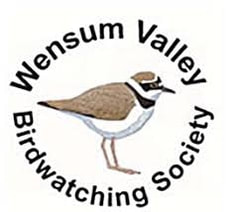|
Speaker: Mark Avery Reporter: Sue Gale Mark Avery paid us a visit in January, and we were very pleased to welcome him – you can rely on Mark to make you think And we absolutely do not believe his claim that he isn’t often invited back! Mark is a naturalist, author, consultant and campaigner who admits to being ‘better’ at birds, mammals and butterflies than he is on plants and most invertebrates. He is co-founder with Chris Packham and Ruth Tingay of Wild Justice, but he was here to promote his new book “Reflections”, in which he considers the current state of nature and of nature conservation. He took us through the book chapter by chapter for the first half of the evening, and then after the break he invited questions/ discussion. The interest aroused can be judged by the fact that this session exceeded its allotted time and took us very close to kicking-out time. Chapter one is devoted to a look at the state of nature close to Mark – his home, town and surrounds, and wonders just how many people actually care or are interested in the life around them. He admitted that he was preaching to the converted here, but how many others would be interested? Take the case of the Herb Robert growing in Mark’s front garden, and of which he is very fond. Not only his neighbours but even an august body like the Royal Horticultural Society would dismiss this plant as a weed. A nuisance to be ‘dealt with’. So, in chapter two he widens his field to the state of nature in general. Although there is often anecdotal evidence of decline or increase in numbers of species (most people will know that Red Kites were scarce 20 years ago but that in some areas it is now unusual not to encounter them) there is often insufficient proper survey data to track the fate of less recognisable species. Over the centuries we as a race have improved the lot of people, but have we done
the same for wildlife? Chapters three and four pose the question – What is wildlife conservation and why have we not done it better? Mark emphasised that although individuals should indeed make every effort to live responsibly, it is the policy decisions that are going to make the difference. This doesn’t absolve us from blame though, these are our policies brought in by governments that we vote for. There have been policy gains – the 1954 Protection of Birds Act is still with us, and birds in the UK would be much worse off without it. This sort of legislation shows that we do know how to go about wildlife conservation, but too often we just don’t do it! There is no getting away from the fact that wildlife is in serious decline everywhere. Chapters five and six are what Mark considers the heart of the book, but we do need to read the first four in order to sensibly consider these last two. Chapter five addresses the reasons why we are not doing better, and chapter six what we can do to improve. Firstly, we don’t spend enough money on it. Then people and the state do not own enough of the land. Mark likes the idea of taking land owned by the utilities back into public ownership. We could manage the moors much better for wildlife, flood prevention etc. and as they are sparsely populated, it makes good sense to start here. And we should use regulation more. Currently we rely too much on persuasion to get landowners to do the right things for nature, and this is too often ineffective. Further reflections include whether or not NGOs are currently fit for purpose – an issue that was picked up after the break, and just how we might go about getting people to care. Mark did strongly advocate writing to your MP, the more of us who do that the better. We should also reassess how we invest our own contributions to conservation organisations. Rather than spreading it around the many deserving causes we should take the time to investigate just how they are using that money. Perhaps write to the NGOs asking them to justify themselves, and then put all of our allotted cash into the best one, in our opinion. (Mark suggested that we add up our total investment at present and then double it to make a useful contribution). Also, we might try and return to the days when the RSPB used to account for how they were doing in conserving their reserves, using explicit data, but this is no longer included in annual reports. Another thing to include in those letters. As usual, an evening with Mark Avery is nothing if not thought-provoking. Mark is convinced that a strong group of activists can wield a lot of influence, although others felt that a wider pressure group was needed to actually result in action. Either way, if we care we should be sure to do all that we can to further the cause of nature conservation. And as Mark would say – read the book! Many thanks to Mark for a stimulating evening..
0 Comments
Leave a Reply. |
Please feel free to read through our reports from our monthly indoor / online meetings. Archives
May 2024
Categories |

 RSS Feed
RSS Feed
